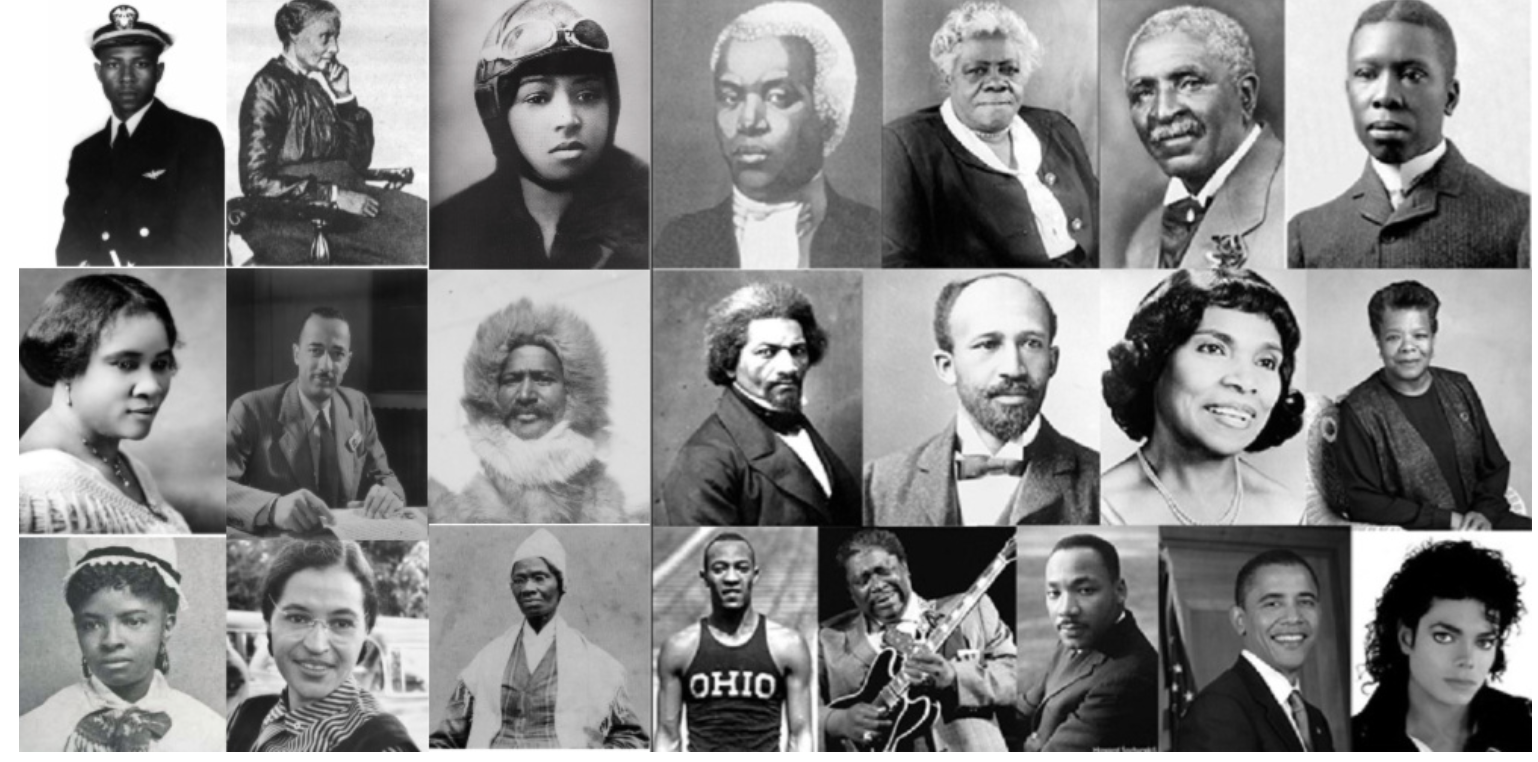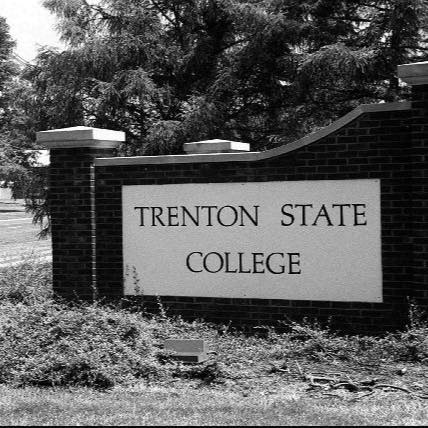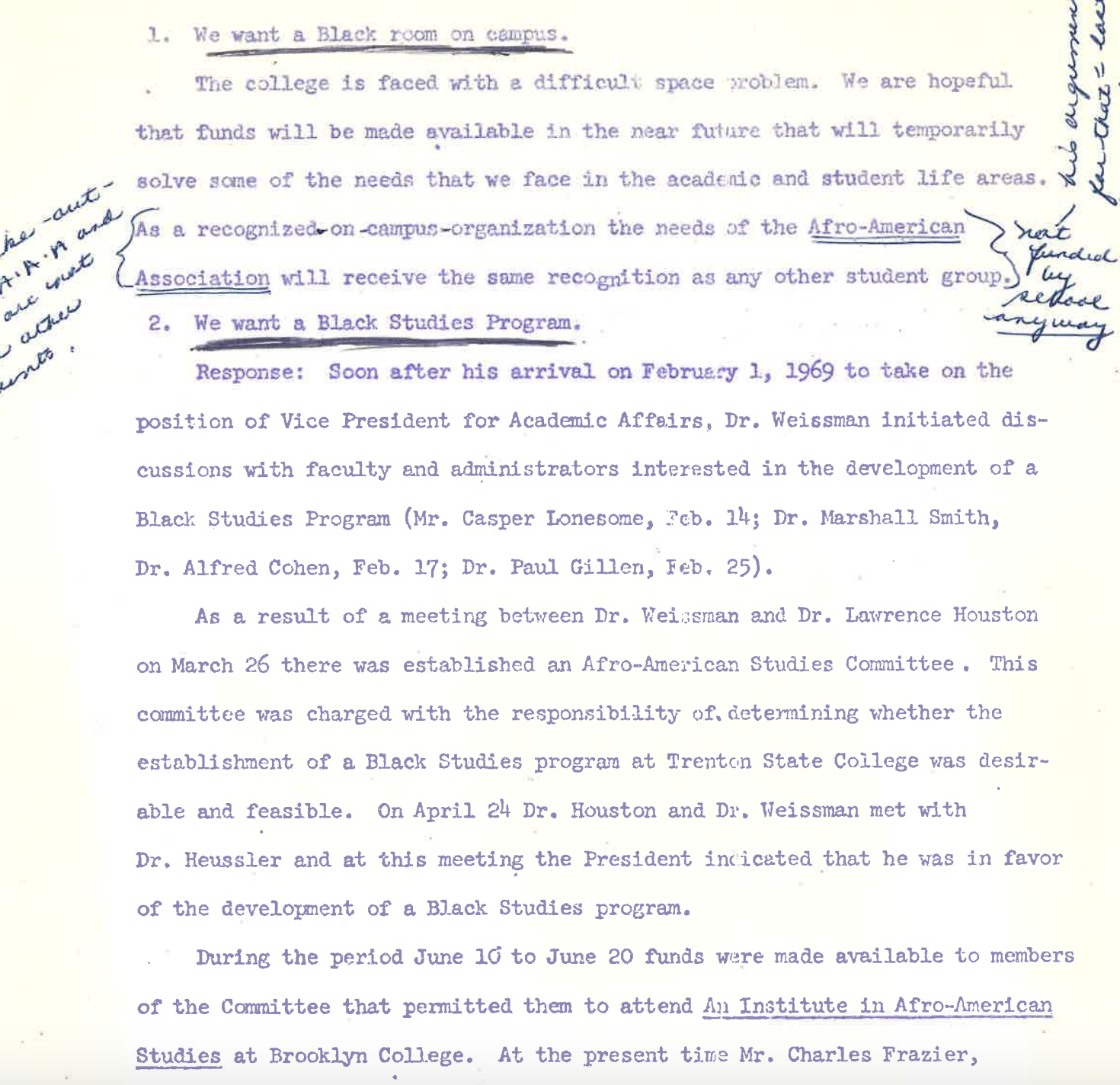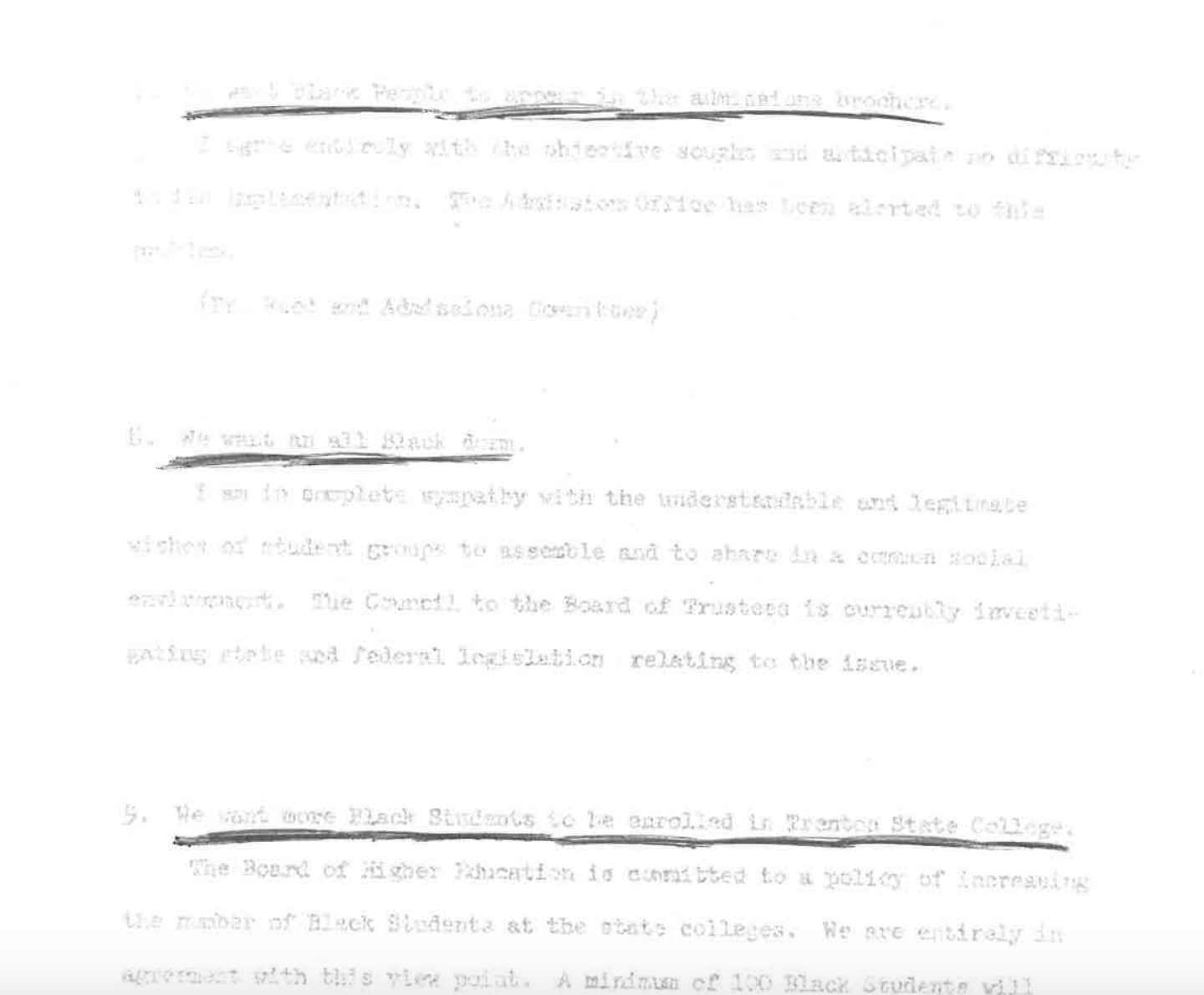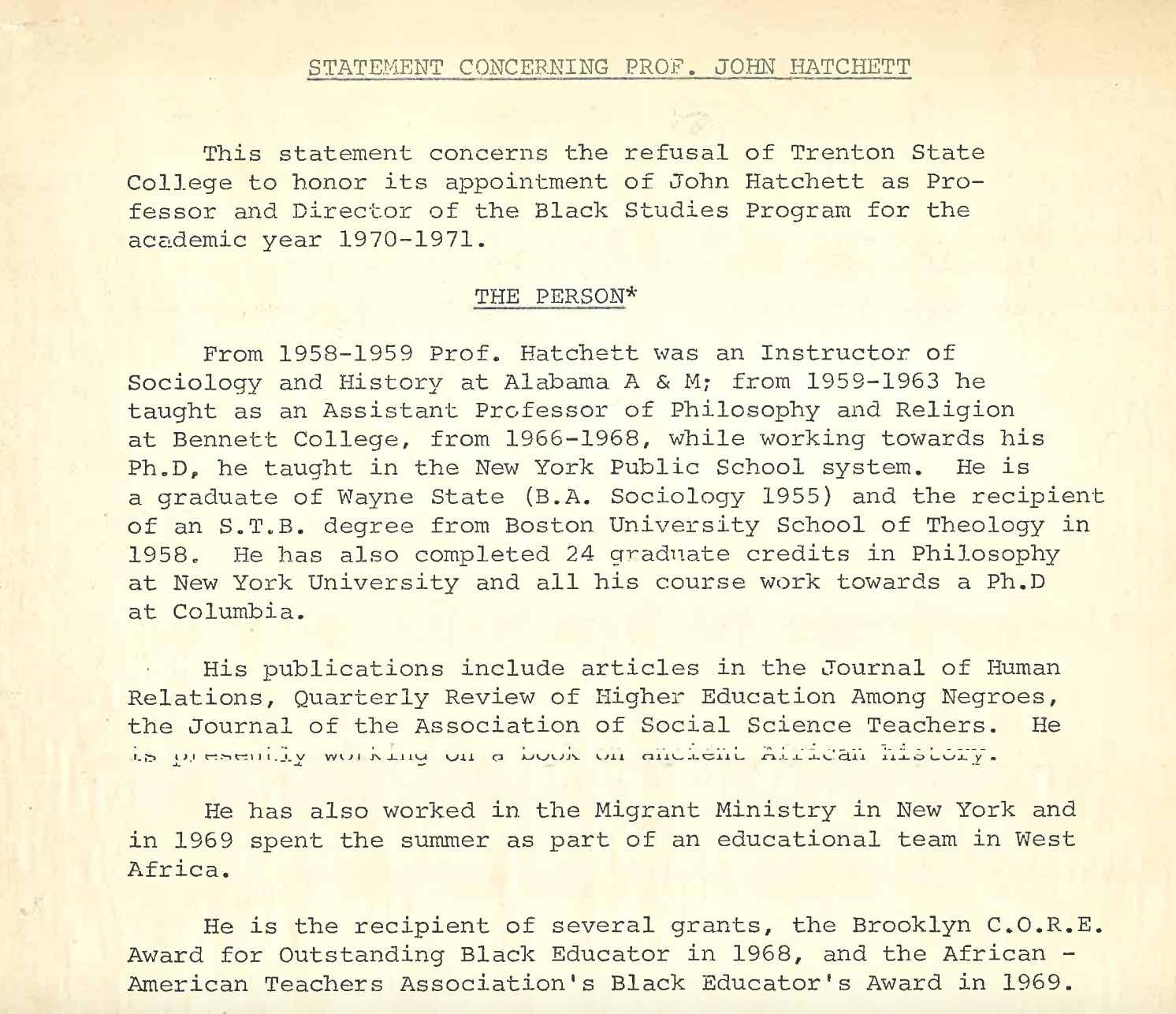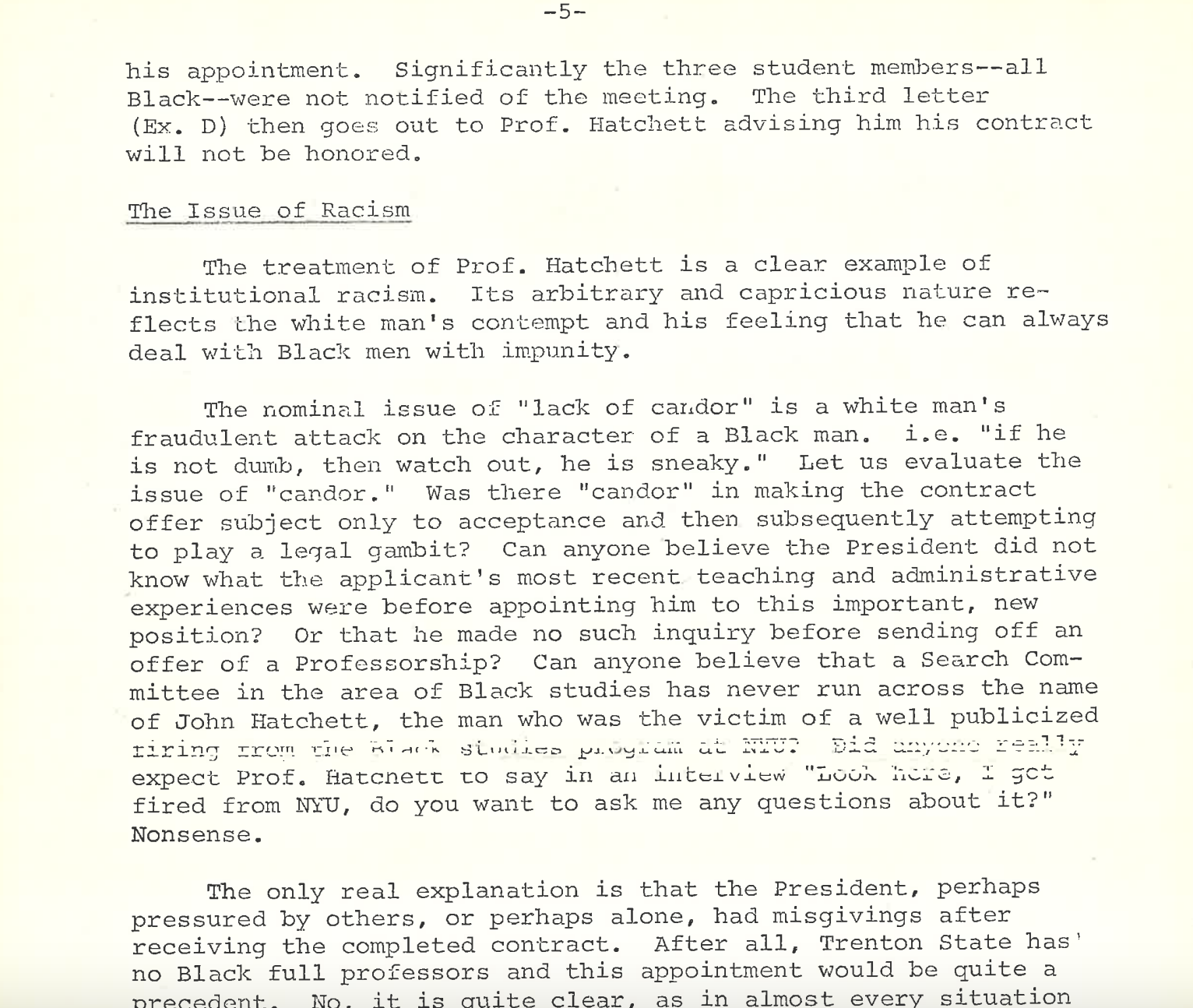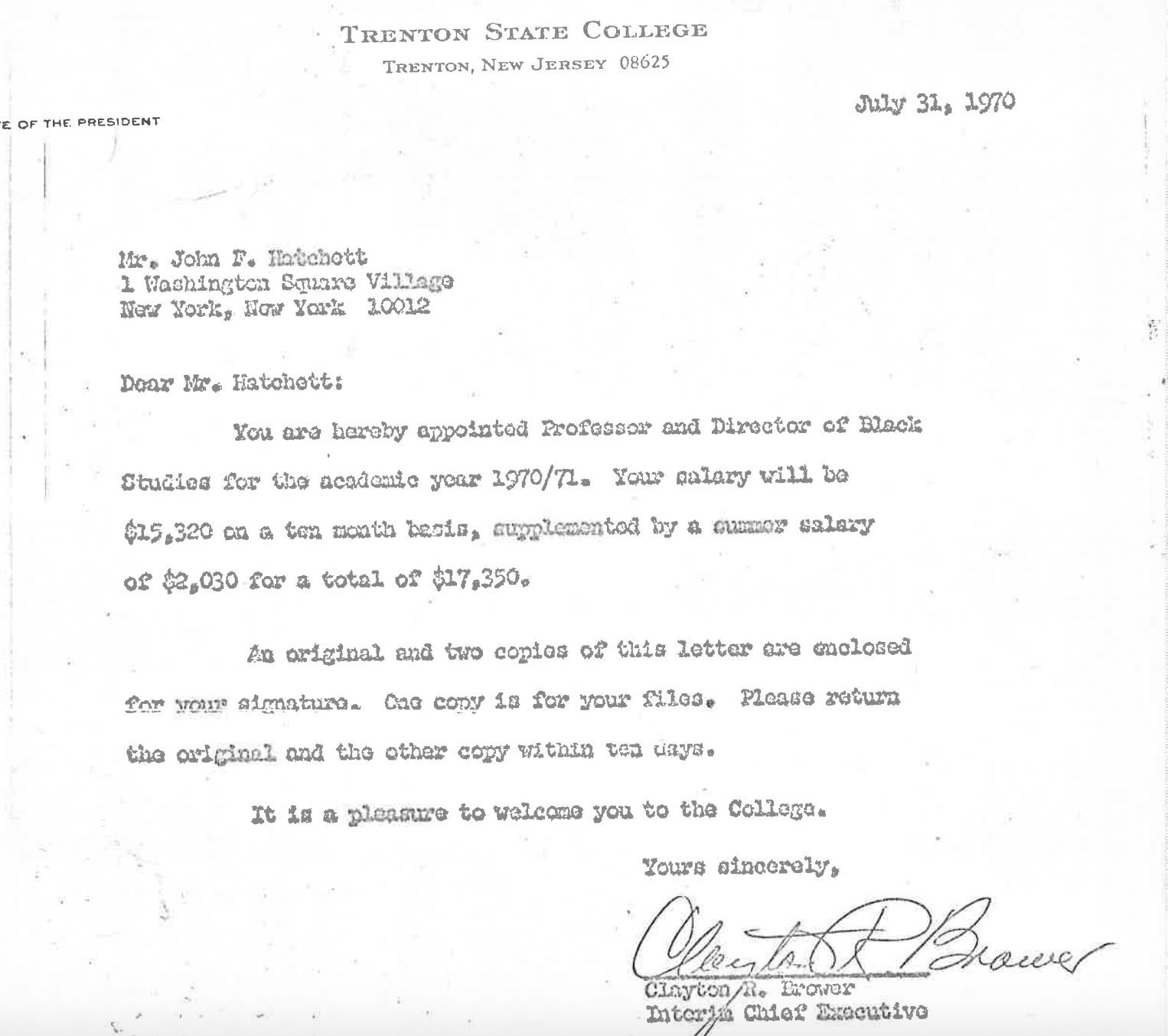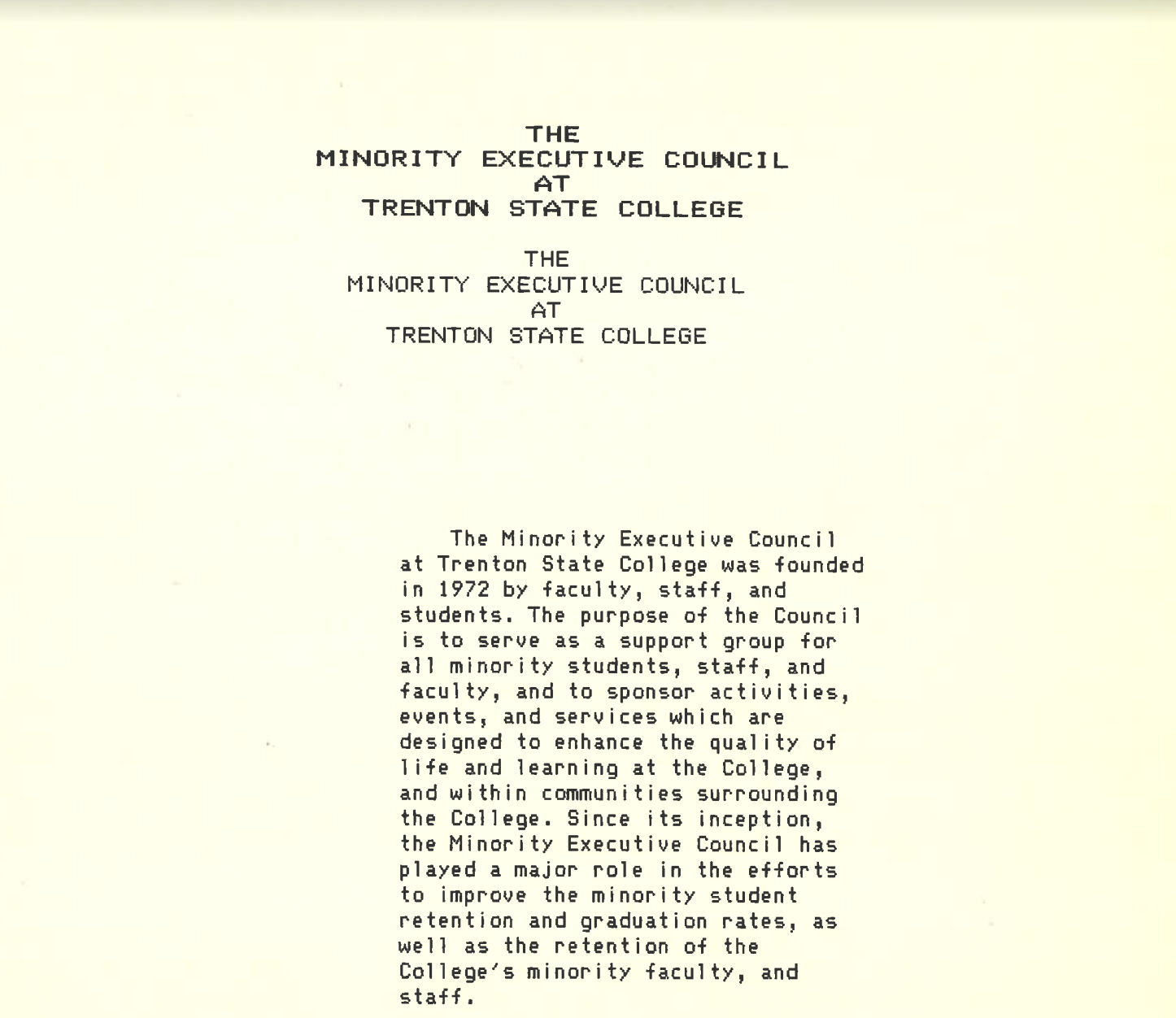College Governance and the Establishment of the TCNJ African-American Studies Department
Created by Ben Gallanter, Maya Mann, and Matthew Dixon
The College of New Jersey's African-American Studies Department 50th Anniversary Archive Project
College Governance Team
Thesis of project: The establishment of TCNJ's AAS department was based on protests and activism that started due to the TCNJ faculty's unwillingness to accommodate the demands of Black and Latino students and other sympathetic members of TCNJ's faculty and staff.
Through the collection and research of effective, thought-provoking historical documents, in-depth oral history interviews with the former chair of the African-American Studies department and current TCNJ history professor, Dr. Christopher Fisher, current TCNJ English and African-American Studies professor, Dr. Piper Kendrix Williams, and CUNY Lehman College Department of Africana Studies professor, Dr. Mark Christian, along with other useful pieces of information related to the history of the establishment of the African-American Studies at TCNJ, the idea that the program and eventual development of the department was based on protests and activism by students and sympathetic, helpful faculty will be displayed.
The history of the establishment of the TCNJ African-American Studies program and its eventual department and major at the college, along with its relation to the national push for black studies programs in higher education learning institutions across the United States is interesting and impactful to analyze. The historical events that pushed the need for this type of program at TCNJ (formerly Trenton State College) shows this enlightening history in a context that outlines how this program came to be able to exist in a time of national racial tension, specifically how this occurred at TCNJ.
During this time period before the department's founding became a valid idea at the college, the events that led to the need for this type of department became clear. The faculty's unwillingness to provide and create an equal opportunity environment at the college for students of all racial backgrounds became a basis for the idea of this program.
After multiple events of reported differences in racial treatment in many capacities toward Black and Latino students on campus, these TCNJ students and inclined, supportive TCNJ faculty created a profound list of demands in order to settle the racial tension on the campus during this time period, with these specific demands and reasonings for these certain demands shown in the presented documents from former TCNJ student, James Chambers.
During an informational oral history interview related to the historical process of events that allowed the AAS department to be created with current professor of history at TCNJ and former chair of the AAS department, Dr. Christopher Fisher, many illuminating topics and events were discussed. The interview discussed Professor Fisher's vital role as chair during his time with the AAS department beginning in 1999 and how he helped to develop the department, his knowledge of the process and history behind the department's foundation, and his belief about the importance of having a Black studies program at colleges nationally. Other important topics and questions discussed included Professor Fisher's knowledge of hardships of student and faculty activists during the time period when the AAS department was established, how AAS courses became a core part of the liberal learning courses at TCNJ, how TCNJ's establishment of its department can be situated nationally compared to other colleges, and the role of influential Black figures at the college like Don Evans and Gloria Dickinson with the department's development, success, and progression at TCNJ over time.
Professor Fisher was also able to provide insight on issues that activists pushed to be solved at TCNJ at the time of the department's creation, the process and events that occurred that led to the need for clear demands to be made, and who he believed had the most important roles in the department's establishment at the college, according to his historical knowledge.
Throughout an insightful oral history interview with current TCNJ English and African-American Studies professor, Dr. Piper Kendrix Williams, important historical events that led to the establishment of the African-American Studies department were additionally discussed. The history and process of the department's establishment were mentioned as well, based on Dr. Williams' knowledge of this history. Important figures of the TCNJ African-American Studies department were outlined by Dr. Williams during the interview, as well as other interesting topics in relation to the African-American Studies department's process of establishment at TCNJ and the national push for Black studies programs.
During an oral history interview with Lehman College professor, Dr. Mark Christian, the current state of Black studies was discussed in detail. The process and events that led to Black studies and important African-American subject matter and history being integrated into American colleges and universities was also examined. Dr. Christian discussed his thoughts about the importance, significance, and necessity of Black studies programs being a part of colleges and universities as well. Dr. Christian mapped out the process and provided an in-depth historical context that showed how it was allowed that Black studies become a part of American higher level education.
Through the analysis and research of past issues of the TCNJ Signal and Utimme Umana, TCNJ's former Black student newspaper, some of the Black student activists' opinions showed their beliefs toward how the differences in racial treatment and reported incidents of racism at TCNJ should be handled. The documents provided by James Chambers discussing both the reported demands of Black students to settle the racial tension and have a more fair, equal campus environment and the documents showing the story of former TCNJ professor John Hatchett display an important historical context related to the establishment of the TCNJ AAS department.
The documents discussing the situation of how many students believed Hatchett was being discriminated against because they believed he was supposedly racist toward white people and anti-Semitic are interesting to view. The documents from former TCNJ president Clayton Brower, showing his letters informing Hatchett originally that he was unable to appoint him as the director of the AAS department and eventually then appointing him after student activism and protest, show the impact and influence that TCNJ student and faculty protest had on the eventual perceived improved accommodation of better racial equality at TCNJ.
The history and story of the establishment of the African-American Studies department at TCNJ is very intriguing to examine. This examination of this interesting historical process at TCNJ and how it situates within the national push for black studies programs being founded at colleges helps to provide an in-depth view of the differences between the past and present, as a current member of the TCNJ community can see what has changed and what has not throughout time by analyzing this history. The establishment of the AAS department is able to show the insightful impact of student and faculty protest and activism toward the vital cause of the creation of this type of influential and important program to include at higher level educational institutions.
By Ben Gallanter
Our project team's feature articles and interpretive essays:
Ben Gallanter's Oral History Interview with TCNJ Dr. and Professor Christopher Fisher
Maya Mann's Oral History Interview with TCNJ Dr. and Professor Piper Kendrix Williams
Matthew Dixon's Oral History Interview with CUNY Lehman College Professor, Dr. Mark Christian
